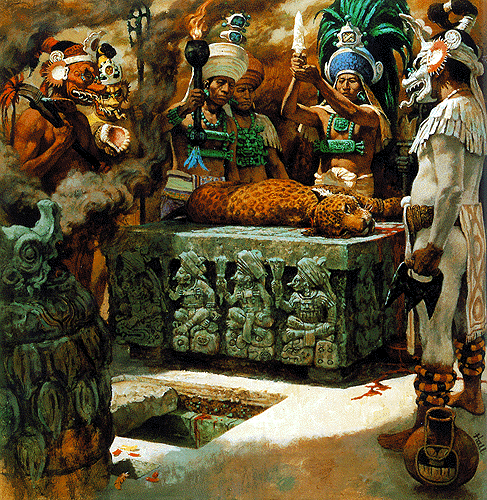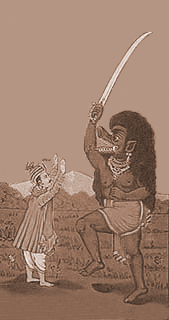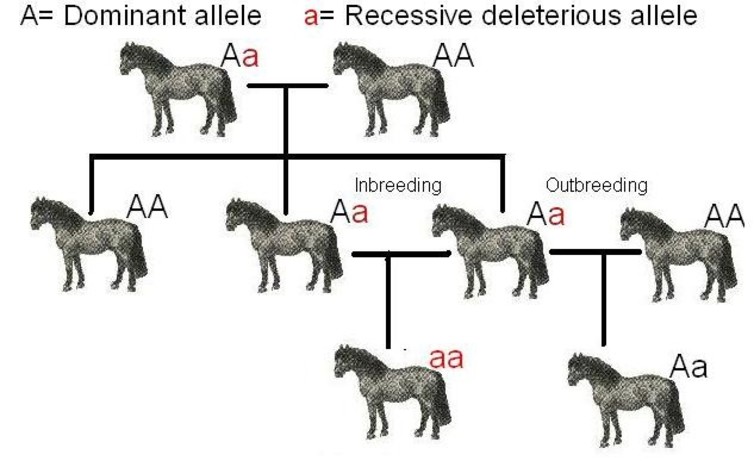Chapter XII: A call for the end
And thou, divine Death, where everything returns and disappears,
Receive your children into your starry bosom,
Free us from Time, Number and Space,
And give us back the rest that life has disturbed.
Leconte de Lisle. (‘Dies Irae’: Poèmes Antiques).
It is worth repeating, and insisting on, that along with the great cats, the masterpieces of Creation, the elephants and other noble herbivores, and the holy forests themselves, the pullulation of man threatens with death (slow, but certain) the most beautiful and gifted of the human races, especially that which interests us above all others: our Aryan race.
This is inevitable, unless intervention in the opposite direction, and in time, is directed by legislators and supported, if necessary, by force. It is inevitable, I say, for the simple reason that the inferior races are by nature far more prolific than the others (the same is true of the various species of four-legged mammals: mice and rats multiply so much more rapidly than lions and tigers!).
 A racial elite can only survive if it keeps its blood pure. And it is clear that even then it can only continue to play its natural role, which is to command, both politically and in other areas, if it is part of a civilisation which, unlike today’s democracies, both popular and plutocratic, rejects any idea of giving priority to the greatest number. As soon as one accepts the principle of universal suffrage—one man, one vote, whatever the man—; as soon as one attributes to any man (of any race, even the least beautiful and least gifted, and even of any level of personal degradation) an immense ‘value’, superior by the mere fact that he is ‘a man’, to that of the noblest animal or tree, one puts the human elite in danger.
A racial elite can only survive if it keeps its blood pure. And it is clear that even then it can only continue to play its natural role, which is to command, both politically and in other areas, if it is part of a civilisation which, unlike today’s democracies, both popular and plutocratic, rejects any idea of giving priority to the greatest number. As soon as one accepts the principle of universal suffrage—one man, one vote, whatever the man—; as soon as one attributes to any man (of any race, even the least beautiful and least gifted, and even of any level of personal degradation) an immense ‘value’, superior by the mere fact that he is ‘a man’, to that of the noblest animal or tree, one puts the human elite in danger.
And the threat of impotence, of deterioration, and finally of death, which is thus brought to bear upon it, is all the more formidable, and all the more imminent, because preventive sanitary techniques more effectively prevent infant mortality and epidemics of all kinds from taking their toll on the weak of any race, and from keeping in check the tendency of the inferior races to swarm at the rate of the rodents.
For if nothing is done to slow down the rate of reproduction of these races at all costs, and if moreover a higher and higher minimum of education is imposed on them, it will automatically be they who will have the last word in a world governed by ‘the majority’—they, or rather a few raceless and faithless demagogues, skilled in manipulating them, and behind them the international Jew. For he is the eternal enemy of all racism (except his own), capable of creating or suppressing at a price of gold, the most diverse demagogies.
In India, this process has been going on for decades already, even for a century, since the moment they became victims of the false belief in the ‘value of every man’. The British have felt it their duty not only to Indianize their administrative services, but to Indianize them from below, by giving more and more benefits to the lower castes—i.e., races—of India at the expense of the Aryan castes. It is they, the English, and they alone, as I have repeatedly said, who are directly responsible for the accelerated decadence of this vast country, not for having ‘exploited’ it excessively, economically; but for having instilled in those who were to become its effective rulers, their democratic and humanitarian ideals.
They are responsible for this in two ways. Firstly, they set up their hospitals and dispensaries, their faculties and their medical research laboratories everywhere. They inaugurated, on a vast scale, the fight against epidemics and especially against infant mortality—against the rapid elimination of the weak—and in every way encouraged the Indians to continue it after their departure. Thus, and while the population increased in frightful proportions (it doubles every thirty years!), they applied to its enormous masses—of different races, but, in the increasing majority, of inferior races—those same democratic principles which haven’t ceased to infect Europe since 1789.
They trained in their school the Indians (Hindus of all castes but, increasingly, of the lower castes; Mohammedans, Christians) to whom they, first under their colonial aegis and then from the ‘independence’ which followed their departure, passed on the burden of power. They imposed universal suffrage; they gave equal importance as voters (however small) to the savage Kuki of Assam, the Naga, the Santal, the Gund, and the fairest-skinned Brahmin with regular features, a blood brother of the best Europeans, and more cultured than many of them. They have chosen, as their successors, Indians, educated in their school and psychologically dead to the racist spirit of the Hindu Tradition, and sure to continue their work of disintegration.
These Indians are now doing the impossible for the promotion of the masses of inferior races, ever more compact, more swarming, more invasive thanks to the decline in mortality. They have set up legislation that gives the greatest number of posts everywhere to the nationals of these masses, as soon as they have assimilated a minimum of literacy. The result is a generalized mess, incredible incompetence at all levels: an express telegram sent from Delhi, takes four days to reach Jammu; the Delhi buses leave at the convenience of their driver, and arrive when they can, etc. It also leads to corruption at all levels, in all departments. But that does not matter.
The main thing is that people now say, abroad, ‘India’, instead of saying ‘the Indies’, and thus the illusion of an Indian ‘nation’ is born. The main thing is that this ‘nation’, or rather this State, which is the spirit of the degenerate, Jewish, humanitarian and pacifist Britons, continue to rule. It is a democracy and, to boot, a secular democracy—without official religion (because this title is refused to immemorial Hinduism), even against any traditional religion, in the manner of Emile Combes’ France: a State in which, some dare to hope, the cult of science and humanity—of science applied to the well-being and ‘happiness’ of ‘all men’—will increasingly replace the cult of the ancient Gods, according to the outdated dream of Auguste Comte.
The essential point is that this State is a multiracial democracy, in which all shades of inferior humanity are in open or latent, noisy or silent revolt against the few millions of Brahmins and Kshatriyas—even against those of them (as is the case with so many southern Brahmins) to whose ancestors the privileges and honours of caste were originally bestowed on account of their extraordinary merits, without having been Aryans.









